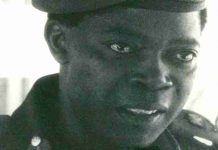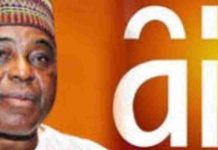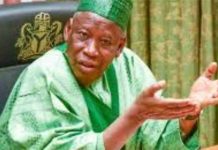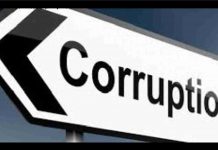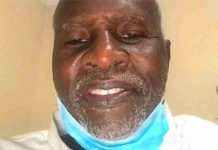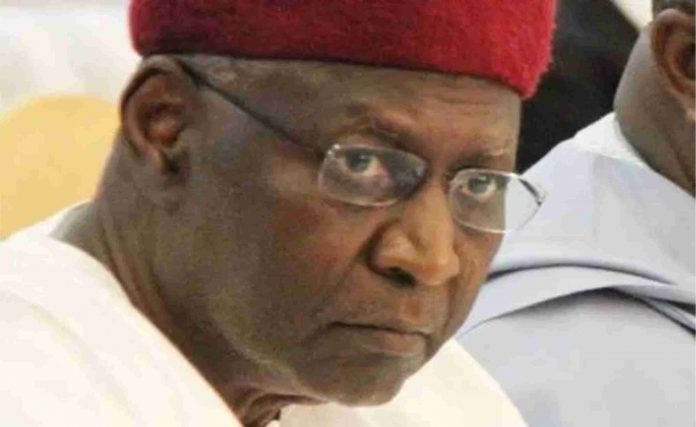On the day Abba Kyari, the president’s Chief of Staff, tested positive to coronavirus, many Nigerians were hopeful, not of his recovery, but of his death. That unholy wish has come to pass: Mr Kyari passed away yesterday, his age, like the hospital where he died, totally unknown to the public.
His death was announced on social media by Femi Adesina, President Muhammadu Buhari’s special adviser on media and publicity. Mr. Kyari is reported to have died of complications related to COVID-19.
First, it is impossible not to notice how shabbily the announcement of his death read: the press release did not care to communicate the exact date of his death, let alone location. For a man who was the Chief of Staff to the President until his death, one would have expected the highest level of clarity and detail.
A quiet and unassuming man of power, Mr Kyari was educated both in Cambridge and Harvard Universities, and served his first public role 30 years ago as a commissioner in Borno State. His national reckoning, however, began in 2015 when he became President Buhari’s Chief of Staff.
Mr Kyari was cherished by his principal to the same degree that he seemed unpopular among many Nigerians, including among politicians who felt he kept the president beyond their reach. Over the years, the Nigerian public has cultivated a fiery resentment against the political class, but Mr Kyari’s negative public perception was more than the result of class loathing.
Following the outrage by Nigeria’s First Lady Aisha Buhari last year that the country had been captured under the grip of “hyenas and jackals” was a BusinessDay report that characterized Mr Kyari as “a prime minister in a presidential system.” Mr Kyari, the report had hinted, was the arrowhead of a cabal riding on a blatant usurpation of state power, purportedly for selfish enrichment.
In a 2018 Premium Times article titled Buhari’s Corrupt and Incorrigible Acolyte – “President” Abba Kyari, written by Bámidélé Adémólá-Olátéjú, Mr. Kyari’s corruption allegations were carefully detailed. A few of these allegations are worth recounting here.
On 16th August,2016, Mr Kyari was alleged to have mounted pressure on the Assets Management Company of Nigeria, to absolve Seawolf Limited, of its debts. Seawolf owes First Bank of Nigeria a whooping N160 billion. On December 17, 2019, Professor Farooq Kperogi, who once described Mr Kyari as Nigeria’s surrogate president, reported that Mr. Kyari was auctioning ministerial positions for President Buhari’s second tenure for N2.5 billion apiece.
On 20th September 2016, evidence was reportedly presented to President Buhari that Mr Kyari collected N500 million from the South African telecommunications company, MTN, to help reduce the fine imposed on the company by the Nigerian Communications Commission. While the president openly recommended his probe, the report never saw the light of the day. The death of that probe put paid to all doubts about Mr Kyari’s untouchability.
Though some observers say President Buhari hired Mr Kyari to shield himself from negative political influence, many believe the Chief of Staff merely inserted himself in a real power gap that had developed from a detached presidency.
What is more, Mr Kyari relished every opportunity to thrust himself into the events, the biggest deals in his principal’s government. Many have wondered why he needed to visit Germany to attend a meeting with electricity contractors when Nigeria has a Minister for Power. It was another pointer to his influence, which although not often apparent—was highly colossal. Unfortunately, it was on this trip that he most likely contracted the virus which ultimately sealed his fate.
Much as it underlined the gravity of coronavirus, then an emerging crisis in Nigeria, Mr Kyari’s ill-health also sparked an international media firestorm, as virtually every important media publication around the world reported, sometimes with karmic satisfaction, how Nigerian political elites are facing the “squalid hospitals” they had abandoned over the years. It is an old conversation made more offensive by President Buhari’s apparent unwillingness to address it.
Mr Kyari died in an unknown private hospital in Lagos despite obscene budgetary provisions for public healthcare, including for the Aso Rock Clinic. But for the globalized spread of coronavirus warranting a resort to national care, he would probably have sought help abroad. Such is the psychology of much of African leadership; where politicians have colonial relationships with the countries under there watch: their lives as well as wealth are rooted abroad, the continent merely serving as their workstations and cemetery.
It is our hope that people in power who love the late Chief of Staff will imbue his death with meaning: he it was who, by providence, restarted a conversation that has been consistently brushed aside by Nigerian politicians over the years. He was one of Nigeria’s most influential Chiefs of Staff. The government should honor his service by totally revamping the Nigerian healthcare system, drawing lessons from a death that has now made a well-known point loud and clear.
May his soul rest in peace.






